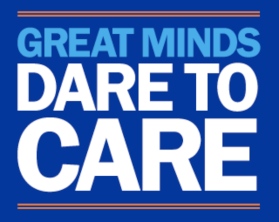
Warning Signs
SHU 24/7 Mental Health Crisis Hotline: 973-275-Help (4357)
Call or text 988 to contact the Suicide and Crisis Lifeline or chat online at 988lifeline.org.
Or text Talk to 741-741 for the Crisis Text Line.
If you are in immediate danger, call 911.
If you are in doubt or have a feeling that a person is considering suicide, ask, “are you thinking of suicide?” Contrary to what you may believe, asking this question will not put the idea in their head or push them to act. In fact, studies show that acknowledging suicide may reduce suicidal ideation.
The American Foundation for Suicide Prevention advises people to watch for the following warning signs. It is especially important to pay attention to these signs if a person has experienced a sudden loss, traumatic event or other major life event.
Talk
If a person talks about:
- Killing themselves
- Feeling hopeless
- Having no reason to live
- Being a burden to others
- Feeling trapped
- Unbearable pain
Behavior
Behaviors that may signal risk:
- Increased use of alcohol or drugs
- Looking for a way to end their lives, such as searching online for methods
- Withdrawing from activities
- Isolating from family and friends
- Sleeping too much or too little
- Visiting or calling people to say goodbye
- Giving away prized possessions
- Aggression
- Fatigue
Mood
- Anxiety
- Loss of interest
- Irritability
- Humiliation/Shame
- Agitation/Anger
- Relief/Sudden Improvement
If you think a person is in immediate danger, call 911 or go to the nearest emergency room.
If a person tells you they are considering suicide, take them seriously. Don’t assume the thought will pass on its own. Don’t argue or make the person feel guilty or ashamed. Here is a helpful conversation guide.
Remember…
- Stay Calm: When someone is in crisis, it is helpful to maintain a calm, steady presence. Speak slowly and clearly. This can often help your friend feel more relaxed.
- Actively Listen: Be an active listener and give your friend your full undivided attention. This is not a time for judgment or directives. Simply listen and offer comfort and support.
- Remind the person they are not alone. If the person is a Seton Hall student, walk them over to CAPS if it’s during normal business hours. You can also call Counseling Services at (973) 761-9500 or Public Safety (973-761-9300) for additional assistance. If it’s after hours, call the SHU 24/7 Mental Health Crisis Hotline at 973-275-Help (4357) or call 988.
- If they refuse campus services, call Public Safety or 911 and stay with them until
help arrives.


